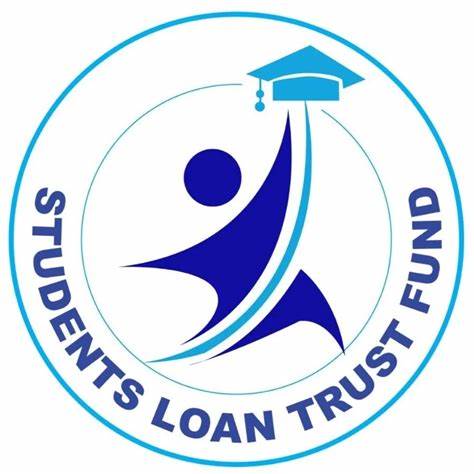Madam Chair, Honourable members of Parliament, distinguished members of the Ghanaian Business Community; representatives of Agencies under the Ministry of Education; representatives of institutions with representation on the Board of the Students Loan Trust Fund; representatives of Student bodies; distinguished Board of Trustees, Management and Staff; Associates of the Students Loan Trust Fund; friends of the media, Ladies and Gentlemen.
It is indeed an honour to be the Special Guest on this occasion of the 10th Anniversary Launch of the Students Loan Trust Fund (SLTF). I have watched with delight the innovation and transformation of SLTF in the last few years and hold the Fund as a benchmark for the Public Services of the Republic of Ghana.
In the last three years SLTF has computerised nearly every aspect of its operations. To buttress the point, Madam Chairperson, Ladies and Gentlemen; the following are some of the IT based solutions that our state institutions need to emulate:
- All payments to beneficiary students are made on the E-zwich platform. There are two main benefits to this: First, it eliminates the proverbial “ghost name” phenomenon from their payment system; and secondly, it gives their clients the flexibility of using various pay-points and so they are not tied to a physical bank or bank branch. Additionally, beneficiaries are alerted by an SMS as soon as disbursement is made on the E-zwich.
- The Fund has also instituted the online application. This is a novelty in the financial sector in Ghana. Because, our financial institutions are still using “good old paper” for loan application. Ladies and Gentlemen, the benefits of this novelty cannot be lost on us – their clients, the students, can fill-out loan application at their convenience using their smart phones and other handhelds, which are popular with our youth of today.
- The availability of loan statements and loan status in a secured manner online, amongst others, are some of the ICT innovations introduced by the Fund in the last three years, which similar parastatals must replicate for efficient and effective discharge of their mandates.
I am, therefore, glad to hear that, in order to make its online services available and relevant nationwide, the Students Loan Trust Fund is embarking on the provision of high-speed internet to ten (10) deprived tertiary institutions, most of which are colleges of education, to enable every student, irrespective of location, have access to all of the Fund’s services.
Thankfully, our business community is here represented, and I will take this opportunity to appeal to you to support this laudable Anniversary Project.
I also have reliable information that this year, SLTF liaised with the banks to deploy point-of-sale (POS) devises to colleges of education in locations with no E-zwich ATMs to enable beneficiaries’ access their loans disbursed on their e-zwich accounts. If our state institutions after deploying their services were, over the years, ensuring the utilization of those services, our society and people would have been the better for it.
Madam Chair, distinguished guests, Board and Management; ICT is not the only tool SLTF is using to ease access to the Students Loan in the last few years. Section 19 of the Students Loan Trust Fund Act, Act 820 (Act 2011) requires that loans given by the Fund be Guaranteed. Hitherto, SSNIT contributor guarantee was the only option for this mandatory requirement. But through the ingenuity of the Board of Trustees and Management, the Fund has greatly diversified the guarantor base:
- Reducing even the SSNIT guarantee option to one (1) guarantor, from 3.
- The inclusion of the Metropolitan, Municipal and District Assemblies (MMDAs).
- Inclusion of Religious bodies/organizations, and
- The inclusion of corporate organizations in the options for guaranteeing the loans.
I am happy to note, Madam Chair, that in the past one year, SLTF through the Ministry of Local Government and Rural Development has been engaging with the MMDAs to activate the guarantee option opened to them, as a means for attracting professionals such as teachers, doctors, nurses and any other skills that a local assembly may require, to their assemblies. This shows that the Students Loan Trust Fund Board and its Management is not doing “business as usual”, but seeks to draw a synergy between its role and the broader national development agenda. This is the context within which all institutions, state or private, should view their roles and tailor their activities for the transformation of our nation as SLTF is doing.
I therefore, implore all our MMDAs to exercise their right to this guarantee option by taking stock of their manpower needs and going out to guarantee tertiary students in areas of their skills needs. You will, therefore, have no excuse for lack of needed manpower because, I am even told that, the Students Loan Trust Fund has rich suggestions to enable you get the students you guarantee for, posted to the assembly when they graduate.
Corporate organization can also enhance their corporate responsibility positions by guaranteeing student loans for tertiary students who hail from their areas of operation, and even for children/wards of their workers.
Madam Chairperson, distinguished ladies and gentlemen. There is no gain saying that education is a public good, a fundamental human right and a basis for guaranteeing the realization of other rights. It is essential for peace, human fulfillment and sustainable development.
I and my government have therefore, pledged our commitment to an education agenda that is holistic, ambitious and inspirational, leaving no one behind. This position of ours gave the impetus for the removal of “schools under trees”; massive infrastructural developments that have culminated in the abolishing of the “shift system”; the addition of more universities; the conversion of polytechnics into technical universities; the building of the teaching hospital at the University of Ghana, amongst others.
This position of government and action thereof, is captured in Article 38 (3c) of the 1992 Constitution, and buttressed by the UN Sustainable Development Goal (SDG) 4 on education which: “Ensure inclusive and equitable quality education and promote life-long learning opportunities for all” and its corresponding targets.
The position of government also, attends to the ‘unfinished business’ of the Education For All (EFA) agenda by the World Education Forum; the education-related MDGs, and therefore, on course to address our national education challenges.
The innovations and successes chalked by the Students Loan Trust Fund ties in well with government’s vision of education and development based on human rights and dignity, social justice, protection, cultural diversity, and shared responsibility and accountability.
I will therefore, add my voice to the National Union of Ghana Students, comprising all the student unions from the SHS through tertiary, in congratulating the CEO of the Fund for her ingenuity and quest for excellence; the Board of Trustees for the indefatigable guidance to the CEO; and the Management and staff for their unrelenting support.
Ladies and gentlemen, it is rightly said that education is the most significant investment that cannot be hampered because of any sort of financial crisis. So, government continues to pledge the biggest chunk of the National Budget to education, in spite of our economic challenges. In this context, we can say that educational loan is the most useful way for managing the huge expenses of education, which is constantly rising.
Singapore is considered as one of the popular places for pursuing higher education studies. Majority of the students opt for the facility of student education loans in Singapore for availing higher studies. Singapore student education loans are defined as really helpful for the acquisition of higher level education.
The success of the Singapore student loan regime, it must be noted, Madam Chairperson, is a result of private sector participation. In Ghana, however, the student loan scheme is funded solely by the Government of Ghana – showing that the state pre-finances the cost to the beneficiary of tertiary education under a cost sharing regime, which has been in existence for nearly three decades.
I am aware that the usual pro-active SLTF has began making moves for private sector participation in the students loan scheme and I am using this opportunity to urge our financial institutions and the private sector in general to consider partnering the Students Loan Trust Fund to develop a student loan product that will both serve their purpose and help students meet their financial obligations.
I wish you a fruitful anniversary.
Thank you.





